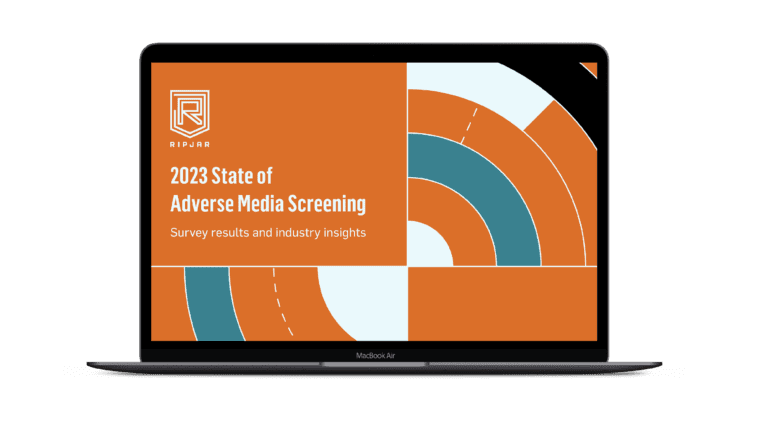TL;DR:
- Ripjar’s 2023 report focuses on the use of adverse media screening in compliance, revealing a shift toward AI adoption.
- 62% of respondents recognize the need to move away from manual processes in favor of advanced technology.
- 71% of firms utilizing technology for screening are incorporating AI and ML into their adverse media screening practices.
- Large Language Models (LLMs) like ChatGPT are gaining traction, with 50% considering adoption and 34% already exploring these models.
- Trust levels in LLMs vary, with 58% expressing some confidence, 23% skeptical, and 12% highly confident.
- Embracing advanced technology is crucial for organizations to proactively mitigate risks and maintain compliance.
Main AI News:
In a groundbreaking revelation, Ripjar, a leading force in combating malevolent and illicit activities, has just unveiled its highly anticipated “2023 State of Adverse Media Screening” report. This report delves deep into the world of adverse media screening and its increasing reliance on artificial intelligence (AI) technologies among compliance professionals.
The study’s key takeaway is crystal clear – technology plays a pivotal role in the ongoing battle against financial crime. Surprisingly, a substantial 62% of respondents have acknowledged the urgency to transition away from manual processes and embrace technological advancements in this domain.
The report exposes that an impressive 71% of firms now employ AI and Machine Learning (ML) for their adverse media screening procedures. However, there remains a notable 20% that stubbornly clings to traditional, manual methods.
A fascinating insight from the report is the growing interest in Large Language Models (LLMs), such as the widely acclaimed ChatGPT, for future adverse media screening. The numbers speak for themselves – 50% of companies are actively considering LLM adoption, 34% are already exploring these cutting-edge models, and 2% have already successfully integrated them into their operations.
Moreover, Ripjar’s comprehensive analysis extends beyond just numbers. It probes into the industry’s sentiment towards the future of adverse media screening, uncovering attitudes and opinions surrounding media screening in businesses. The challenges and potential benefits of moving towards automated processes are also extensively examined.
Predictions indicate that LLMs like ChatGPT are poised to revolutionize operational processes across organizations. However, there remains some variation in trust levels amongst respondents – 58% expressed a degree of confidence, 23% felt rather skeptical, and 12% exuded unwavering confidence in the technology.
The resounding message from the report is that embracing advanced technologies is a must for organizations seeking to proactively mitigate risks and ensure compliance in today’s ever-evolving landscape.
Jeremy Annis, the visionary CEO and co-founder of Ripjar, enthused, “We stand at the forefront of a transformative era in adverse media screening, largely propelled by remarkable advancements in AI and machine learning. Our survey report vividly highlights the immense impact technology adoption can wield in enhancing risk detection and compliance measures.“
Gabriel Hopkins, the esteemed Chief Product Officer at Ripjar, chimed in, stating, “This survey report truly underscores the game-changing potential of technology in the fight against financial crime. It unequivocally reveals that firms embracing cutting-edge technological solutions are reaping significant advantages.“
Conclusion:
Ripjar’s 2023 report sheds light on the transformative impact of AI and machine learning in the realm of adverse media screening. The data clearly indicate a growing inclination towards advanced technology adoption, particularly in the form of AI-driven solutions like Large Language Models. As the market witnesses this shift, organizations that embrace these cutting-edge technologies are likely to gain significant advantages in detecting financial crime and ensuring compliance. To remain competitive and mitigate risks effectively, businesses must wholeheartedly embrace the power of AI in their adverse media screening processes.

